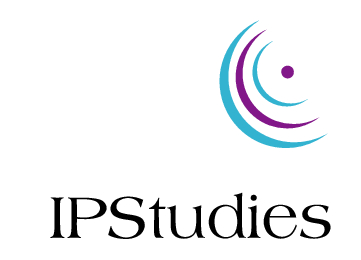Emmanuelle Charpentier and Jennifer Doudna just received a few hours ago the Nobel prize in Chemistry 2020 for “the development of a method of genome editing”, namely their 2012 discovery of the CRISPR/Cas9 genetic scissors which basically enables to “cut and paste” DNA. This scientific discovery has fueled an unprecedented biotechnology development in the past 8 years. When we started to analyze the genome editing patent landscape in Spring 2014, there were only 96 patent families(*) in our records in relation with CRISPR. We have now more than 7400 in our latest records – and adding an average of 200 more every month in 2020. What does this data tell us on who has taken advantage in engineering new life sciences solutions out of this amazing scientific discovery, now confirmed worth a Nobel Prize?
Continue readingTag: IP
10 facts from the January 2016 CRISPR patent landscape
Our quarterly CRISPR patent landscape is now available. For this first release in 2016, we have included the latest business and technology developments, such as licensing deals information and a fully revisited breakdown of the functional and technical claim coverage. Our genomics expert Dr. Fabien Palazzoli has identified 489 CRISPR patent families out from worlwide patent registers, and systematically reviewed them down to individual claim wording to classify them into our unique, worldwide, independent CRISPR patent database.
In the meanwhile, facts and opinion papers around the Broad-Berkeley USPTO patent interference have been overloading our news monitoring capacity in the past 4 weeks… but that’s just about 2 pioneering families in the whole landscape. Here are 10 new facts out of the latest IPStudies CRISPR patent analytics – 489 CRISPR patent families as of January 2016:
Genome editing applications – Brussels – Feb 3-4, 2016
IPStudies will be attending the next Genome Editing Applications event in Brussels, now postponed to 3 – 4 February 2016.
A number of companies identified in our CRISPR patent landscape will be speaking there, such as CRISPR Therapeutics (TJ Cradick), Cellectis (Philippe Duchateau), AstraZeneca (Lorenz Mayr), Janssen R&D (Ines Royaux), Novartis (Anett Ritter), Cellecta (Paul Diehl), Merck & Co (Myung Shin), Precision Biosciences (Victor Bartsevitch), as well as instutional applicants such as the Technical University of Denmark, the Netherlands Cancer Institute, Duke University, Wellcome Trust Sanger Institute, and Royal Holloway-University of London.
The event also features a dedicated, interactive evening seminar, discussion and dinner on Intellectual Property and Business Strategy Landscape of Genome Editing Technologies, to be lead by Dr. Philip Webber from Dehns (UK Patent and Trade Mark Attorneys). More information can be found here.
For those attending, we invite you to take this opportunity to meet our head of biotech IP analytics, Dr. Fabien Palazzoli – ask a demo of our interactive CRISPR patent landscape for genome editing R&D/IP positioning! Our free sample can be downloaded here.
IP licensing training in Lyon, March 2015
IEEPI (Institut Européen Entreprise et Propriété Industrielle) organizes in 2015 a training on best practices of international licensing agreements in collaboration with Corinne Le Buhan from IPstudies SARL.
Next session: Thursday March 5th, 2015 09:00-17:30
Location: INPI Rhône-Alpes Lyon – 8 rue Montrochet 69285 LYON, France
Language: English
Description: This practice course will focus on licensing strategies, preparation of the IP agreement proposal, the anatomy of a licensing agreement and negotiation of a licensing contract.
Target audience: Business development managers, licensing executives, IP practitioners, contract managers, technology transfer managers, lawyers.
Level of expertise: intermediate
Details and registration here
TAL Effectors and CRISPR-Cas patent survey
We’re pleased the announce the availability of new IPStudies patent landscapes on TAL Effectors and CRISPR-CAS, two outstanding and competing genome engineering technologies that have raised significant investments in academic as well as industrial research in the past 5 years.
Our TAL Effectors and CRISPR-Cas patent landscapes analyze worldwide published patent families regarding:
- Transcription Activator-Like effectors (TAL Effectors – TALE), including genome editing methods based on TALE Nucleases (TALEN);
- Clustered Regularly Interspaced Short Palindromic Repeat (CRISPR), including genome editing methods based on the emerging CRISPR-Cas9 systems breakthrough technology.
The survey comprises:
- a global patent database (265 patent families) comprising both TAL Effectors and CRISPR, in order to give an overall overview of the IP situation, including the comparison of patent filings and the technological positioning of actors on either TAL Effectors or CRISPR or both;
- a focus on TALE Effectors (197 patent families), including TALE Nucleases;
- a focus on CRISPR (96 patent families), including CRISPR-Cas9 nucleases.
For more information, survey sample and order form, please check our dedicated page here.
Can patent indicators predict company valuation? A review of recent findings
One of the newest and most promising areas in econometrics research focuses on the valuation of companies based on their patent stock. This work, initiated by Hall’s observations regarding the correlation between patent citations and a company stock value, has blossomed in the past 5 years. Here is a review of recent findings.
